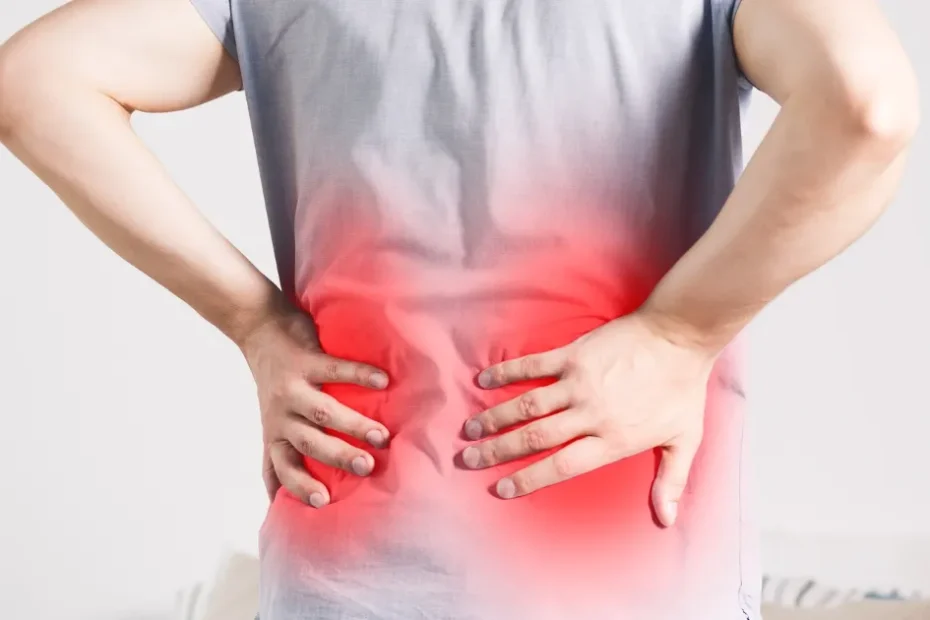Relieve Kidney Pain at Home Experiencing kidney pain can significantly disrupt daily life and leave you searching for relief. Millions of people worldwide deal with kidney-related issues, making it essential to understand the causes, symptoms, and management of kidney pain for better health and well-being.
- What Causes Kidney Pain?
- Protein-Creatinine Ratio (PCR) Calculator
- Source & Credits:
Below, we’ll explore common causes of kidney pain and provide practical home remedies to manage this condition.
What Causes Kidney Pain?
Kidney pain can arise from various factors, often signaling underlying health issues. Common causes include:
| Cause | Description | Symptoms |
|---|---|---|
Urinary Tract Infection (UTI) | Infection in any part of the urinary tract (kidneys, bladder, ureters, urethra) |
|
Kidney Infection | Infection of the kidneys, often from an untreated UTI |
|
Kidney Stones | Hard mineral deposits in the kidneys or urinary tract |
|
Bladder Infection | Bacterial infection of the bladder |
|
Other potential causes | Kidney cancer, polycystic kidney disease (PKD), bleeding in the kidneys, or blood clots | N/A |
Symptoms of Kidney Pain Due to Dehydration
Common signs of kidney pain caused by dehydration include:
- Dull ache or sharp pain in the lower back, side, or abdomen.
- Reduced urine output or dark-colored urine.
- Fatigue and dry mouth.
- Nausea or vomiting may occur in severe cases.
Preventing Kidney Pain Caused by Dehydration and Relieve Kidney Pain at Home
Staying adequately hydrated is vital to preventing kidney pain associated with dehydration. Here are some practical tips:
- Drink Adequate Water: The general rule is to drink eight 8-ounce glasses of water daily (the 8×8 rule), or more if you’re active or live in a hot climate.
- Monitor Urine Color: Clear or light yellow urine indicates proper hydration, while dark urine may signal dehydration.
- Hydrate Before and After Exercise: Sweating during physical activity increases fluid loss, so replenish with water or electrolyte drinks.
- Limit Diuretics: Reduce consumption of alcohol and caffeine, which can contribute to dehydration.
- Eat Hydrating Foods: Incorporate fruits and vegetables like cucumbers, watermelon, and oranges into your diet.
Effective Home Remedies for Relieving Kidney Pain at Home
| Remedy | Benefits | Usage |
|---|---|---|
| Stay Hydrated |
|
|
| Drink Cranberry Juice |
|
|
| Take Probiotics |
|
|
| Try Parsley Juice |
|
|
| Take a Warm Epsom Salt Bath |
|
|
| Use Non-Aspirin Painkillers |
|
|
| Apple Cider Vinegar |
|
|
| Basil Juice |
|
|
| Pomegranate Juice |
|
|
| Kidney Bean Broth |
|
|
| Dandelion Root Juice |
|
|
Preventive Measures & Relieve Kidney Pain at Home
- Limit Salt and Sugar Intake: Reducing your intake of salt and sugar can help prevent kidney stones. Excess salt can lead to the formation of calcium stones, while high sugar levels can increase the risk of kidney stones.
- Reduce Oxalate-Rich Foods: Foods high in oxalates, such as spinach, beets, and nuts, can contribute to the formation of calcium oxalate stones. Limiting these foods may help prevent the formation of kidney stones.
- Increase Calcium Intake: Paradoxically, a diet low in calcium can increase the risk of kidney stones. Calcium-rich foods can help prevent stones by binding to oxalate in the intestines and preventing absorption.
- Maintain a Healthy Weight: Obesity is a risk factor for kidney stones. Maintaining a healthy weight through a balanced diet and regular exercise can help reduce the risk of stone formation.
A PCR calculator provides a fast and reliable method for measuring the protein-to-creatinine ratio in a urine sample, helping healthcare providers diagnose and monitor kidney function.
Protein-Creatinine Ratio (PCR) Calculator
Protein Creatinine Ratio Interpretation
Here’s an example of interpreting Protein Creatinine Ratio (PCR) values.
| Protein-to-creatinine ratio | Interpretation |
|---|---|
| Less than 0.2 | Normal |
| 0.2 – 0.5 | Borderline elevated; may indicate early kidney damage |
| Greater than 0.5 | Elevated indicates kidney damage |
Why it’s important to know about the Protein-Creatinine Ratio (PCR) Calculator.
Here’s a summary based on the information in the current document:
The Protein-Creatinine Ratio (PCR) calculator is a valuable medical diagnostics tool primarily used to assess kidney function. Here’s why it’s necessary to know about it:
- Early detection of kidney disease: The kidneys play a vital role in filtering protein from the blood. When the kidneys are damaged, protein can leak into the urine. The PCR helps detect this protein leakage, which can be an early sign of kidney disease, even before other symptoms appear.
- Monitoring kidney disease progression: For individuals already diagnosed with kidney disease, the PCR can help track the progression of the disease and the effectiveness of treatment. An increasing PCR indicates worsening kidney function, while a decreasing PCR suggests improvement.
- Convenience and accuracy: The PCR is a convenient and accurate alternative to the 24-hour urine protein test, which can be cumbersome to collect. A single urine sample can be used to calculate the PCR, making it a more patient-friendly option.
- Risk stratification: The PCR value helps in risk stratification, determining the severity of kidney involvement and guiding clinical decision-making.
Causes of Frequent Urination
A concise, data-driven overview of common causes of urinary frequency, ordered by prevalence with quick explanations to guide triage and patient education.
> Most Common Causes (with quick notes)
~16–27% of adults
Involuntary bladder contractions → urgency and frequency, often with nocturia. Risk rises with age and stimulant intake (e.g., caffeine).
50–60% lifetime risk (women)
Bladder/urethral irritation from infection triggers frequent, often painful urination. Recurrent in 20–30% of cases.
~50% men ≥50; up to 90% by 80
Prostate enlargement compresses the urethra → weak stream, incomplete emptying, and frequency (especially nocturia).
Polyuria is a key symptom
Excess blood glucose draws water into urine (osmotic diuresis), increasing volume and frequency; watch for thirst and fatigue.
Very common contributors
High fluid intake, caffeine, alcohol, and acidic foods increase urination. First-line changes: moderate fluids and reduce irritants.
Less common, more serious
Frequency with fever, flank pain, or nausea warrants urgent care. Treat promptly to prevent complications.
Significant lifetime risk
Prostate cancer or prostatitis can mimic BPH symptoms (frequency, weak stream). Evaluation determines cause and treatment.
Near-universal in pregnancy
Hormones and a growing uterus reduce bladder capacity; frequency is common in 1st and 3rd trimesters.
Common after 60
Reduced bladder elasticity and pelvic floor changes lead to urgency and nighttime urination.





Deep cleaning goes beyond regular brushing. It reaches those hard-to-reach areas and removes stubborn plaque and tartar that can lead to gum disease. It’s like a spa day for your teeth!
Thank you very much for sharing, I learned a lot from your article. Very cool. Thanks. nimabi
Always consult your doctor first! While these remedies might help some, it’s crucial to get professional advice, especially for severe cases.
It’s surprising how much healthy nutrition impacts kidney pain. I learned that limiting phosphorus and potassium was key for my condition
Home remedies for kidney stones? Seriously? Been there, done that, ended up in the ER anyway. Nothing touches that kind of pain except actual medicine. Don’t waste your time.
helloI like your writing very so much proportion we keep up a correspondence extra approximately your post on AOL I need an expert in this space to unravel my problem May be that is you Taking a look forward to see you
Hello my loved one I want to say that this post is amazing great written and include almost all significant infos I would like to look extra posts like this